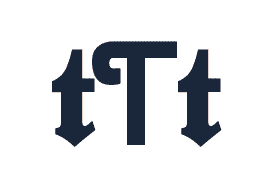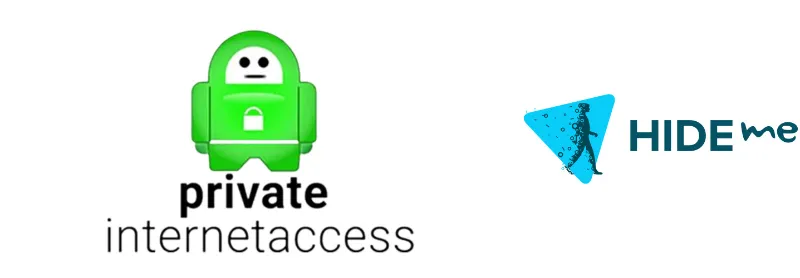Welcome to the world of WhatsApp, a place where communication is made simple and convenient. Whether you’re a tech newbie or a seasoned pro, you’ve probably heard of WhatsApp Web and WhatsApp Desktop.
But what’s the difference between these two platforms? And more importantly, which one is right for you?
We’ll explore their unique features, compare their pros and cons, and help you decide which one best fits your needs.
What Are The Key Differences Between WhatsApp Web and WhatsApp Desktop?
Here are the five (5) differences between the two;
Difference 1. Application vs. Browser-based
The most striking difference between WhatsApp Desktop and WhatsApp Web lies in how you access them. WhatsApp Desktop is an application that you need to download and install on your computer.
Once installed, you can access your WhatsApp messages directly from your desktop, without opening a web browser.
On the other hand, WhatsApp Web is a browser-based platform. You can access it through any web browser, like Chrome, Firefox, or Safari.
Simply navigate to the WhatsApp Web URL, scan the QR code with your phone, and voila! You’re connected.
This difference might seem trivial, but it can significantly impact your user experience. If you’re someone who prefers having a dedicated app for messaging, you might find WhatsApp Desktop more to your liking.
But if you’re all about simplicity and don’t want to install another app on your computer, WhatsApp Web could be your best bet.
Which is better, WhatsApp Web or WhatsApp Desktop?
Well, it really depends on your personal preference and how you like to work. If you prefer a dedicated app, go for WhatsApp Desktop. If you’d rather not install anything, WhatsApp Web is your friend.
Difference 2. Offline Access
Another key difference between WhatsApp Desktop and WhatsApp Web is their offline capabilities. With WhatsApp Desktop, you can access your messages even offline.
This is a handy feature if you’re in an area with spotty internet connection or if you’re trying to save on data usage.
In contrast, WhatsApp Web requires a constant internet connection. This is because it operates directly through your web browser and needs to sync with your phone to function.
If your internet connection drops, you cannot access your messages via WhatsApp Web.
So, if you’re often in places with unreliable internet or if you want to read your messages without being online, WhatsApp Desktop might be the better option for you.
What are the disadvantages of WhatsApp Desktop?
One potential downside is that it requires installation, which might not be ideal if you’re short on storage space. Plus, it requires a constant connection to your phone, just like WhatsApp Web. But on the upside, you can access your messages offline, which isn’t possible with WhatsApp Web.
Difference 3. System Requirements
System requirements are another area where WhatsApp Desktop and WhatsApp Web differ. To use WhatsApp Desktop, your computer needs to run on Windows 8.1 or newer, or macOS 10.10 or newer.
This means that if you’re using an older operating system, you might not be able to install the WhatsApp Desktop app.
On the flip side, WhatsApp Web can be used on any system that supports a web browser. This makes it a more flexible option if you’re using an older computer or a less common operating system.
So, before you decide between WhatsApp Desktop and WhatsApp Web, check your computer’s operating system and its compatibility with WhatsApp Desktop.
If your system doesn’t meet the requirements, don’t worry! You can still use WhatsApp Web to stay connected.
For more information on how to use WhatsApp effectively, check out our post on the differences between WhatsApp group and broadcast.
Difference 4. Multitasking
When it comes to multitasking, WhatsApp Desktop takes the cake. On the desktop application, you can open multiple windows to chat with different people at the same time.
This feature is a game-changer if you’re juggling multiple conversations and need to switch between them quickly.
Unfortunately, this multitasking feature isn’t available on WhatsApp Web. On the web platform, you can only view one chat window at a time.
If you want to switch to a different conversation, you’ll need to go back to your chat list and select the other conversation.
So, if you’re a multitasker who likes to keep several conversations going simultaneously, WhatsApp Desktop might be your better choice.
But if you prefer focusing on one conversation at a time, you might find WhatsApp Web’s simpler interface more appealing.
Difference 5. Data Usage
Data usage is another factor to consider when choosing between WhatsApp Desktop and WhatsApp Web. While both platforms need to sync with your phone to function, they handle data usage differently.
WhatsApp Web might consume more data because it constantly syncs with your phone.
Every time you send or receive a message, it’s transmitted twice: once from the sender to your phone, and once from your phone to your web browser.
On the other hand, WhatsApp Desktop, once synced, uses less data. This is because the desktop app stores your messages locally, reducing the need for constant syncing.
So, if you’re conscious about data usage, especially if you’re on a limited data plan, WhatsApp Desktop might be the more data-friendly option.
But remember, both platforms still require your phone to have an internet connection to sync your messages.
What is the benefit of WhatsApp Desktop?
One major advantage is that it can help you save on data usage compared to WhatsApp Web. Plus, it allows for offline access and multitasking, enhancing your messaging experience.
How to Choose Between WhatsApp Desktop and WhatsApp Web
Choosing between WhatsApp Desktop and WhatsApp Web ultimately boils down to your personal preferences and needs. Here are a few things to consider:
- Your Device and System: If you’re using an older computer or a less common operating system, WhatsApp Web might be your only option. On the other hand, if your system meets the requirements for WhatsApp Desktop and you have enough storage space, you might prefer the desktop app for its offline access and multitasking capabilities.
- Your Internet Connection: If you often find yourself in areas with unreliable internet, WhatsApp Desktop might be the better choice thanks to its offline access. But if you always have a stable internet connection, either platform would work.
- Your Data Plan: If you’re on a limited data plan, you might want to opt for WhatsApp Desktop, as it uses less data once synced.
- Your Work Style: If you’re a multitasker who likes to keep several conversations going at once, you might prefer WhatsApp Desktop. But if you prefer focusing on one conversation at a time, WhatsApp Web’s simpler interface might be more appealing.
Frequently Asked Questions (FAQ)
Q1. Can I use both WhatsApp Desktop and WhatsApp Web?
Yes, you can use both platforms. However, keep in mind that you can only be logged in to one computer at a time.
Q2. Do WhatsApp Desktop and WhatsApp Web have the same features?
While both platforms offer similar features, there are some differences. For instance, WhatsApp Desktop allows for offline access and multitasking, which aren’t available on WhatsApp Web.
Q3. Do I need my phone to use WhatsApp Desktop or WhatsApp Web?
Yes, both platforms require your phone to be connected to the internet to sync your messages.
Q4. Which platform uses more data, WhatsApp Desktop or WhatsApp Web?
WhatsApp Web might consume more data as it constantly syncs with your phone. WhatsApp Desktop, once synced, uses less data.
Q5. Can I install WhatsApp Desktop on any computer?
WhatsApp Desktop requires a specific operating system (Windows 8.1 or newer, macOS 10.10 or newer) to run. If your system doesn’t meet these requirements, you won’t be able to use the app.
Conclusion
And there you have it! We’ve explored the key differences between WhatsApp Desktop and WhatsApp Web, from system requirements to data usage.
We’ve also delved into the pros and cons of each platform to help you make an informed decision.
Remember, the best platform for you depends on your personal needs and preferences. Whether you value offline access, multitasking capabilities, or the simplicity of a browser-based platform, there’s a WhatsApp solution for you.









